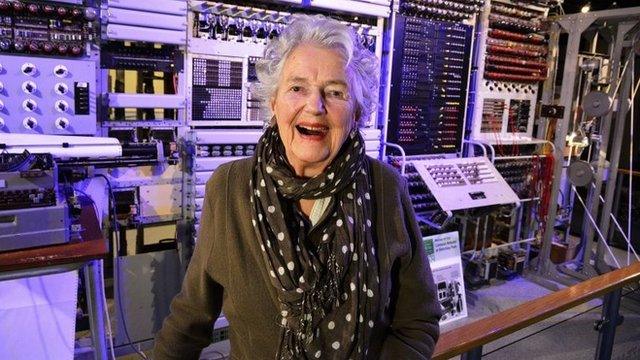Enigma I: '€100 typewriter' found to be German code machine
- Published
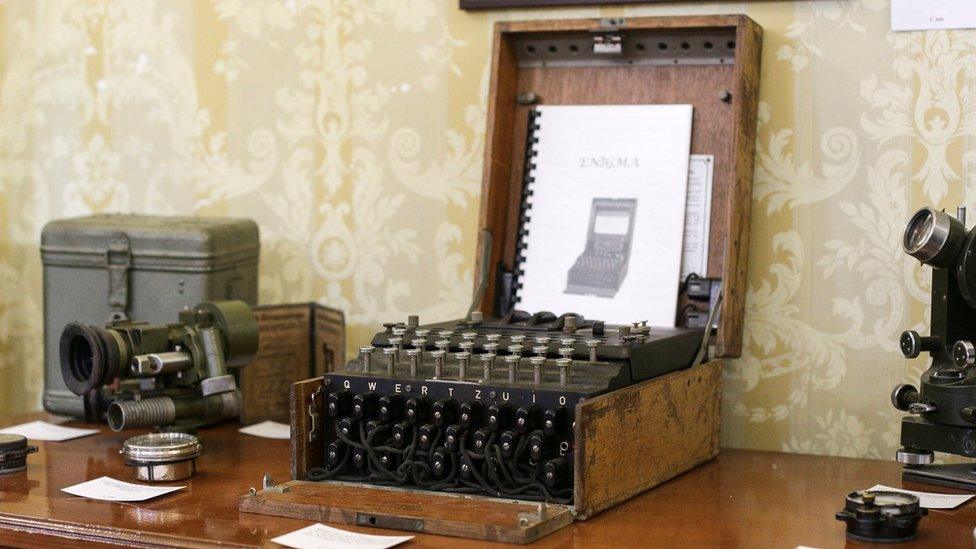
The machine was being sold at a flea market as a typewriter
A 100 euros typewriter has sold for 45,000 euros (£40,000; $51,500) at auction, after it was discovered it was actually a German Wehrmacht Enigma I.
The World War Two cipher machine was bought at a flea market by a cryptography professor, who apparently recognised its true worth.
It was sold to an online bidder in Bucharest, Romania, on Tuesday.
Enigma machines were used to carry coded military communications during the war.
First developed in Germany in the 1920s, the codes created by the electromechanical encryption devices were eventually cracked by mathematician Alan Turing and his team at Bletchley Park.
Bucharest auction house Artmark put this particular Enigma machine on sale with a starting price of €9,000.
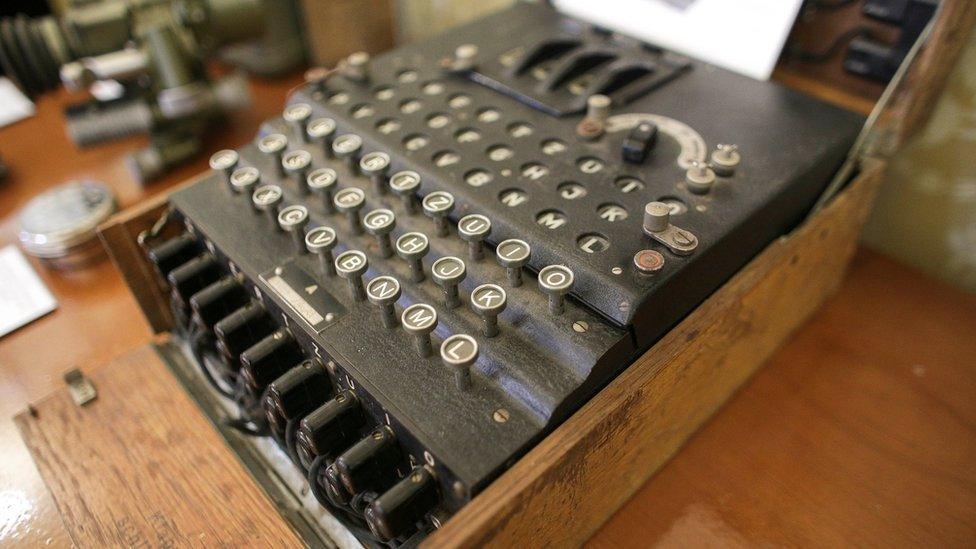
It was sold at a Romanian auction house
Cristian Gavrila, the collectible consignment manager at Artmark, told Reuters: "The collector bought it from a flea market. He's a cryptography professor and... he knew very well what he was buying."
However, the eventual sale price fell far short of the record amount for an Enigma machine at auction, after one sold at Christie's in New York for $547,500 last month.

How does the Enigma machine work?
Rotors at top left could be rotated to different settings, to generate different codes - more rotors made the code more difficult to crack
The message was typed into the machine using typewriter keys at the front
Each time a letter was typed a lamp lit up one of the letters in the middle of the machine - this illuminated letter then formed part of the cipher text
Later models had a plugboard at the front (under the operator's hand), which added an additional level of complexity

- Published23 March 2012
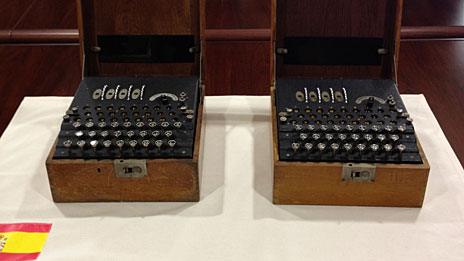
- Published29 May 2016
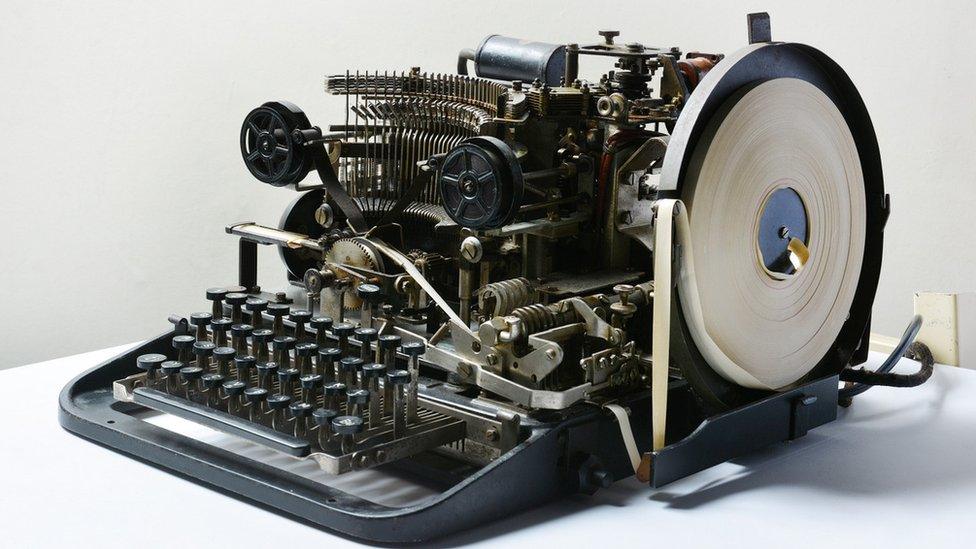
- Published22 September 2014
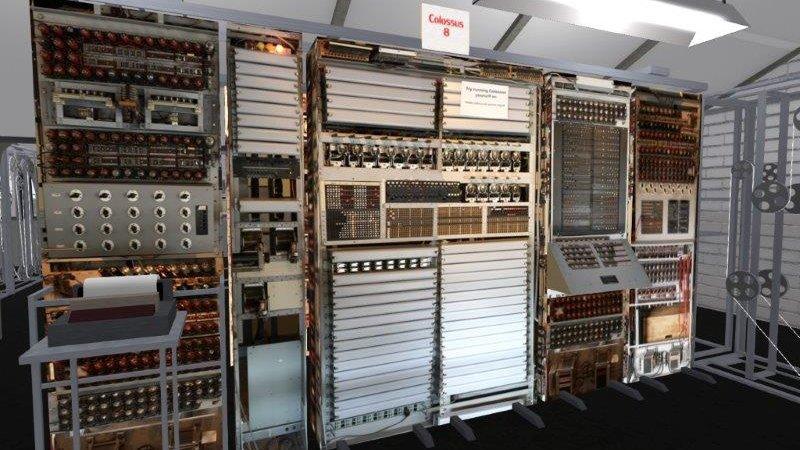
- Published6 February 2014
